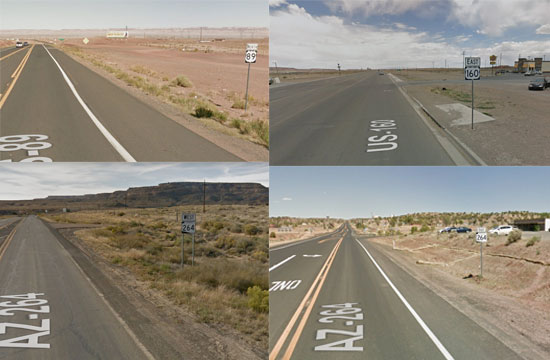Highways in northeastern Arizona honor Native American veterans
Highways in northeastern Arizona honor Native American veterans

Veterans Day has been a federally observed holiday since 1954, when President Dwight D. Eisenhower renamed it and expanded its observance from the earlier World War I-focused Armistice Day to a larger acknowledgement of all those who have fought in the U.S. Armed Services.
"In order to insure proper and widespread observance of this anniversary, all veterans, all veterans' organizations, and the entire citizenry will wish to join hands in the common purpose," Eisenhower wrote in his first Veterans Day Proclamation.
We heartily agree with that sentiment, which is why several years back we highlighted how more highways than you might think are named to honor veterans.
But since we wrote that, a few more highways in northern Arizona have been added to the list, but with a more specific – and appropriate – focus.
In 2019, a joint resolution of the Arizona State Senate named portions of US 89, State Route 264 and US 160 to honor the Native American veterans who have served so ably in the military. The resolution provided those highways be renamed as follows:
- US 89 between Flagstaff and the Utah state line is designated the "Native American Veterans Highway."
- The portion of State Route 264 that runs through the Navajo Reservation is designated the "Navajo Code Talker Highway," while the portion on the Hopi Reservation is designated the "Hopi Code Talker Highway."
- US 160 between the junction with US 89 and the New Mexico state line is designated "Native American Women Veterans Highway."
The resolution provides ample reasons for naming these highways for Native American veterans including:
- "Native Americans have served in wars involving the United States from Valley Forge to the hostilities in Afghanistan and Iraq; and ... with the highest record of military service of any group in the United States."
- "Navajo Marine Corps radio operators, who became known as as the 'Navajo Code Talkers,' developed an unbreakable code using their nation's language to communicate military messages."
- "Ten Hopi men developed a code language that they used to assist United States army intelligence in the Marshall Islands, New Caledonia and the Philippines during World War II."
- "Fourteen Native American women served in the Army Nurse Corps during World War I ... 800 Native American women served in the military from 1941 to 1945; and ... nearly 3,900 among 1.4 million active duty military are Native American women."
Wherever you are this Veterans Day, we hope you are remembering those who served. But if you happen to be in the area of Page, Tuba City, First Mesa, Ganado or otherwise on the state highway system in northeastern Arizona, this is a good time to remember how Native Americans have contributed to the country's military history.
